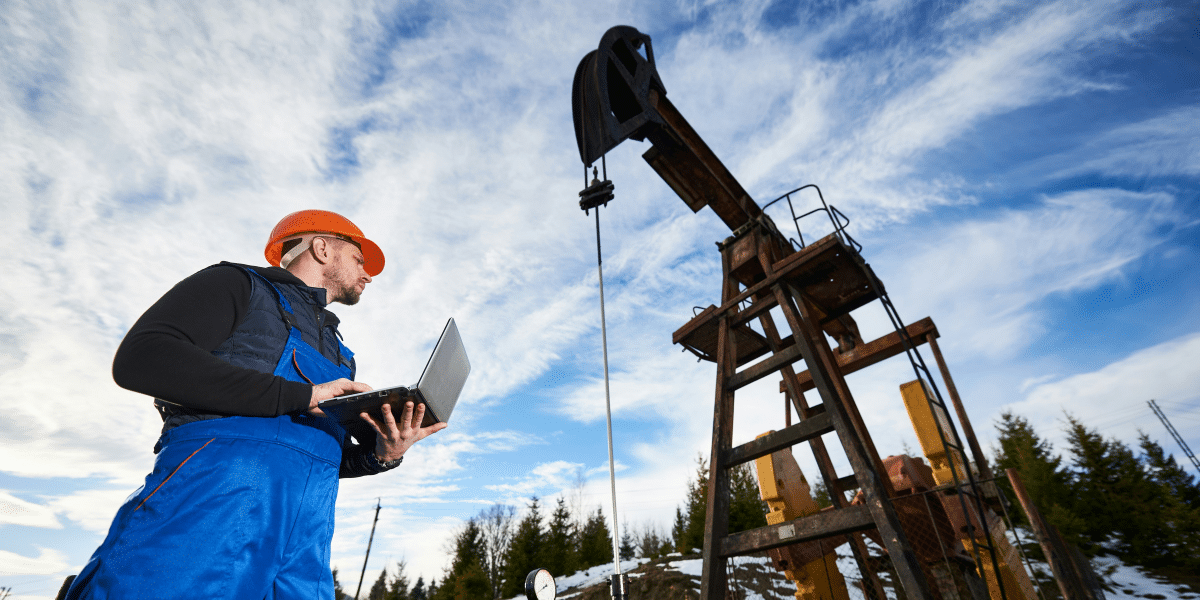Oil well services are pivotal in the oil and gas sector, ensuring drilling safety, productivity, and success. JG Solis Corp examines the importance of high-caliber health services and the crucial factors of their potency. Aspects such as know-how, familiarity, cutting-edge engineering, and streamlined project management will be reviewed to understand what characterizes a reputable provider.
What are Oil Well Services?
Oil well services encompass an assortment of projects related to the exploration, drilling, and upkeep of wells. These use sophisticated gear to extract crude and gas from underground caches. Drilling to access subterranean petroleum and gas reserves is pivotal. Exploration is essential for identifying possible drilling sites through geological surveys and seismic testing. Production starts upon finding petroleum and processing the extracted assets for commercial use. Servicing is crucial for ensuring wells’ functionality, with preventative steps and consistent checks to prolong equipment lifespan. State-of-the-art technology like sophisticated drilling rigs, well-monitoring frameworks, and automation tools elevate productivity and safety standards.
The Importance of Quality Oil Well Services
Providing quality oil well services is essential for the industry’s success. Factors such as efficiency, safety, stringent quality oversight, effective risk management, cost-effectiveness, and performance metrics play a vital role in determining their effectiveness.
Ensuring Safety and Efficiency
In oil well services, ensuring safety and operational efficiency are paramount. Key elements that promote a safe working environment and maximize productivity include consistent equipment maintenance, preserving structural integrity, following occupational health and safety protocols, conducting comprehensive risk assessments, and establishing emergency response plans. Regular upkeep is pivotal in preventing unnecessary downtime and ensuring that oil well operations run smoothly. Thorough inspections, timely repairs, and preventative servicing are essential to proactively identify and fix potential issues, reducing the likelihood of costly breakdowns that halt operations. Maintaining a stable wellbore structure is crucial to prevent leaks and curb environmental hazards. Adherence to health and safety regulations is imperative to protect workers and surrounding locations. Risk assessment procedures aid in identifying potential risks and implementing measures to reduce them. Effective contingency plans are essential to promptly address unexpected circumstances, ensuring the safety of all personnel and assets.
Critical Factors for Successful Oil Well Services
A company’s success relies upon a blend of expertise, innovation, rigorous quality assurance protocols, robust data analytics, accordance with industry benchmarks, and regulatory compliance. These work in tandem to enhance overall performance and effectiveness across operations.
Expertise and Experience
Expertise and experience must be recognized when providing top-notch oil well services. Employee training should cover various fields, including reservoir engineering, geology, geophysics, and completion techniques, ensuring a profound understanding of the intricacies. Specialized training ensures that professionals can streamline procedures and achieve extraordinary results. Organizations with relevant expertise and experience can boost output efficiency and reduce hazards.
Advanced Technology and Equipment
Incorporating state-of-the-art engineering and cutting-edge devices is essential for oil well services. Automation, predictive servicing, artificial intelligence, and machine learning are crucial to optimizing tasks, improving efficiency, and stimulating progress. Integrating such technological advancements allows petroleum corporations to streamline processes, minimize downtime, and elevate safety standards. Artificial intelligence algorithms examine statistics to identify techniques and tendencies, aiding decision-making and proper resource allocation. Machine learning algorithms continuously learn to refine operational strategies, enabling projects to be adaptable and reactive to evolving circumstances.
Effective Project Management
Effective project leadership plays a vital role in oil operations. Juggling resource allocation, schedules, risks, supply chains, and strategic decisions requires adept management to ensure smooth operations and achieve targets. Project leaders coordinate various aspects, maintaining budgets while ensuring materials and equipment arrive on time. Addressing challenges and seizing opportunities requires swift decisions in dynamic environments. Moreover, proficient problem-solving allows issues to be resolved quickly, reducing disruptions and delays.
Strong Communication and Collaboration
Collaborating and communicating efficiently is paramount in oil well services. Adjusting, embracing improvements, and developing cohesive teamwork optimize performance. The smooth exchanges between partners and crews result in quick decisions, solutions, and productivity. Collaboration also leads to innovative ideas and overall success while reacting to an evolving industry to maintain relevance and competitiveness. These allow providers to elevate operations and boost team output.
Choosing the Right Oil Well Service Company
Determining the right oilfield service company requires careful consideration of numerous factors, including a track record of satisfied clients, a well-earned reputation built on financial performance and adherence to best practices, and effective decision-making processes.
Factors to Consider
When opting for a service provider, research the competitive landscape, assess prevailing market demands, and supply chain management capabilities, and overarching global market dynamics. A nuanced grasp of these elements is essential. Thoroughly evaluating rivals reveals both strengths and weaknesses to target.
Questions to Consider When Evaluating Oil Well Services Providers
When selecting an oil well services company, it is essential to ask about its capabilities in several areas. Health intervention procedures, testing methods, production optimization strategies, and facility management require careful examination. Understanding a provider’s approach is pivotal, as this directly impacts reservoir maintenance and output levels over time. Their testing processes also require investigation, as the quality of acquired data affects decision-making when seeking to refine operations. Finally, properly overseeing surface facilities and maintenance activities is essential to ensuring smooth workflows; specifics regarding this aspect of operations warrant discussion. Carefully examining each domain allows for determining a company’s expertise and efficiency in providing services.
Published by: Nelly Chavez


















